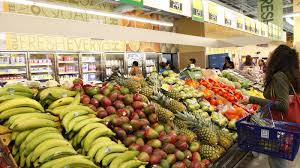ActionAid Nigeria and other stakeholders in agriculture have urged the Federal Government to urgently create a separate agriculture emergency fund outside the 2023 agriculture budget to avert looming food crisis in the country.
The stakeholders includes Small-Scale Women Farmers Organisation of Nigeria (SWOFON) and the Comprehensive African Agricultural Development Programme (CAADP) Non-State Actors Coalition (CNC) made the call in a news conference on Monday in Abuja on the “Proposed Agriculture Budget.
They decried that 21 states and FCT required urgent assistance based on the Cadre Harmony report released in March ending a month after the commencement of Russia-Ukraine war.
According to the organisations, the states are Abia, Adamawa, Bauchi, Benue, Borno, Cross-River, Edo, Enugu, Gombe, Jigawa, Kaduna, Kano, Katsina, Kebbi, Lagos, Niger, Plateau,, Taraba, Sokoto, Yobe and Zamfara
“The Cadre Harmony report released in March ending a month after the outbreak of Russian-Ukraine war indicates that 21 states of Nigeria and the FCT accounting for 14.5 million people (9.1 per cent) of analysed population required urgent assistance between March to May 2022.
“During the projected period of June to August the number of vulnerable populations may rise to 19.5 million (12.3 per cent) of the overall population analysed,’’ the organisations said.
Mr Azubuike Nwokoye, Food and Agriculture Programme Manager, ActionAid Nigeria said unless conscious efforts are made to provide strategic resilience-focused interventions and humanitarian assistance in areas where necessary.
Nwokoye urged the government to quickly mop up agricultural produce excesses across the country in areas where flooding did not occur through a Guaranteed Minimum Price (GMP) for storage and reduction of post-harvest losses and distribution to affected areas.
According to him, this food and nutrition insecurity is caused by insurgency, armed banditry, farmers herders clashes as wells as floods across the country that have ravaged farmlands and livelihood and high post-harvest losses of N3.5 trillion annually.
“The analysis focusing on 2023 budget is aimed at x-raying how the Nigerian agricultural sector is funded and positioned for growth, employment creation for the teeming farming population, meets the domestic food requirement among others,’’
He explained that out of the 20.5 trillion, the agricultural sector’s allocation is 228.4 billion (1.11 per cent) which is rather low in terms of its proportion to the entire budget.
“Over seven years, the budget for the sector has not exceeded two per cent of the total budget. However empirical evidence has shown that the greater the resources committed to a sector, the greater output in terms of social benefit to the society.
“Giving that the agricultural sector is adjudged as the sector with the potential to transform the economy and employ the teeming youths, adequate funding must be prioritised for it in the national budget,’’ he said.
Also, Rosemary Effiong, Chairperson CAADP FCT emphasised `If the government is to allocate 10 per cent of N20,507,942,180.704 the total budget amount, it therefore means that the expected amount should be N2,050,794,218,070.4 in line with the CAADP benchmark.
“Therefore, given the current amount, there is a shortfall and a huge gap of N1,822,3652,668.4.
“However, it would be relevant to highlight that even if there is an accumulation of all the 36 states and the FTC and the Federal budget allocation to agriculture, the amount and percentage will be significantly low,’’
Mrs Nnenna Chukwu, Secretary SWOFON, FCT Federal and State governments should as a matter of urgency complete ongoing construction of dams. construct new dams, water catchments.
According to her, they should desilt existing dams to function at full capacity, dredge the rivers and put ecological funds to adequate and articulate use for irrigation for all year round farming to ensure food and nutrition security.
Also, Andrew Mamedu, Director, Resources Mobilisation and Innovation, described 1.11 per cent budgetary allocation to agriculture as abysmally low and unacceptable considering the looming food crisis in the country.




